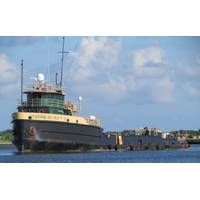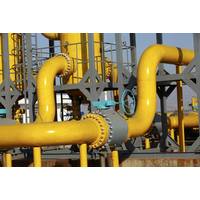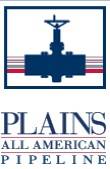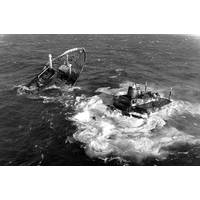Wall Street Journal Sept. 27
These are the most popular stories from the Wall Street Journal. These stories have not been verified and we cannot vouch their accuracy. U.S. Antitrust enforcers will bar Hess CEO John Hess joining the board at Chevron in a deal that approves a $53 Billion tie-up between Hess & Chevron. Accident investigators from the National Transportation Safety Board urged Boeing and the Federal Aviation Administration to fix a potential safety hazard in about 350 Boeing 737 models that are currently flying.
NTSB Accident Report: Erratic Steering Led to 2019 Sabine Pass Collision

The National Transportation Safety Board found that the erratic steering of a supply vessel led to a 2019 collision resulting in more than 6,000 gallons of diesel oil being dumped into the Sabine Pass, a busy waterway between Texas and Louisiana.On Thursday, April 8, 2021, NTSB released Marine Accident Brief 21/08 detailing its investigation of the collision between offshore supply vessel Cheramie Bo Truc No 22 and the Mariya Moran/Texas on Nov. 14…
KY Gasline Erupts in Flames, One Dead

A natural gas line erupted in a ball of flames that could be seen for miles over a residential community in rural Kentucky on Thursday, killing one person and setting several houses on fire, a local sheriff said.The blast, in Moreland, a community about 40 miles (65 km) south of Lexington, was the second so far this year on Canadian energy company Enbridge Inc's Texas Eastern natural gas pipeline following an incident in Ohio in January that injured at least two people.A woman killed in Thursday's explosion was found outside her home…
NTSB Investigating Deadly Illinois Gas Explosion
The U.S. National Transportation Safety Board said Thursday it is investigating a natural gas pipeline explosion that killed one and injured 11 in Canton, Illinois. The explosion occurred at 5:45 p.m. Wednesday near the main square in the town of 15,000 people in central Illinois, local officials said. Several buildings were damaged and a two-block area was evacuated. (Reporting by David Shepardson)
Colonial Pipeline Restarted Line 1 on Sunday
Colonial Pipeline said Line 1 began shipping gasoline between Houston and Linden, New Jersey, on Sunday morning for the first time since a deadly Oct. 31 explosion and fire near Helena, Alabama. The outage of Line 1, which can carry 1.3 million barrels of gasoline daily from the U.S. Gulf Coast to the New York area roiled wholesale gasoline markets all week and boosted retail prices across the southeastern United States. In a statement posted on a company website on Sunday…
U.S. Safety Board opens probe into Colonial pipeline accident
The U.S. National Transportation Safety Board said on Friday it had opened an investigation into the Colonial Pipeline Co accident in Helena, Alabama, which killed one worker and seriously injured four others. Colonial's gasoline pipeline ruptured on Monday during routine maintenance operations. The company said Friday it expects to restart the pipeline on Sunday afternoon. A team of five NTSB investigators arrived Thursday and will be in Alabama for several days conducting interviews, documenting the accident site and collecting evidence.
NTSB Study: ECP Brakes Out-Perform Other Systems
As part of its ongoing investigation of the derailment of a crude oil unit train in Casselton, North Dakota, today the National Transportation Safety Board produced a Train Braking Simulation Study, which it placed into the investigation docket. The study was prompted by recent North American crude oil and ethanol train derailments that resulted in the release of large volumes of flammable liquids that endangered persons, property, and the environment.
US Safety Watchdog's Oil Train Plan 'Infeasible' -Refiners
The leading voice for the refining sector on Thursday said it was not realistic for U.S. regulators to expect existing oil train tankers to be retired within five years, and sought a meeting with the National Transportation Safety Board (NTSB). "The emphasis on tank car modifications through an overly aggressive and infeasible retrofit schedule creates the incorrect perception that tanks car improvements are the magic remedy," Charles Drevna, the president of the American Fuel & Petrochemical Manufacturers wrote. On Friday, the U.S.
North Dakota's Train Safety Rules Inadequate
New regulations to cap vapor pressure of North Dakota crude fail to account for how it behaves in transit, according to industry experts, raising doubts about whether the state's much-anticipated rules will make oil train shipments safer. High vapor pressure has been identified as a possible factor in the fireball explosions witnessed after oil train derailments in Illinois and West Virginia in recent weeks. The new rules, which take effect on April 1…
California Regulator seeks $1.6 Bln Penalty for PG&E blast
California's chief utility regulator on Friday urged a record $1.6 billion penalty against Pacific Gas & Electric stemming from its deadly 2010 San Bruno natural gas pipeline rupture and fire near San Francisco, a $200 million increase over an earlier proposal. The newly proposed sum, sought by California Public Utilities Commission President Michael Picker, is an alternative to a $1.4 billion penalty recommended in September by administrative law judges for the agency. The five-member commission could vote on the recommendations as soon as April 9.
North Dakota Passes Crude Safety Rule
North Dakota's Industrial Commission on Tuesday ordered that all oil produced from the Bakken petroleum system must be passed through surface separation facilities to ensure it is safe prior to transport. The regulations respond to concerns about the flammability of Bakken oil following a series of train fires across the United States and Canada involving crude originating from the Williston Basin. From Apr 1, 2015, all oil produced from the Bakken and associated formations must be passed through a gas-liquid separator or heater-treater.
Oil on Derailed Train Belonged to Plains All American

The Bakken oil shipment aboard the CSX Corp train that derailed and burst into flames in Virginia on Wednesday belonged to midstream energy firm Plains All American LP, according to three industry sources. Plains All American did not respond to repeated requests for comment. CSX earlier said that the train was carrying Bakken oil and was en route to Yorktown, Virginia. The railroad company declined to identify the shippers whose cargo was aboard the derailed cars.
Disasters at Sea & Their Impact on Shipping Regulation

The history of marine safety is soaked in water and written in blood. “I think that most people will tell you that changes in marine safety are almost exclusively disaster-driven,” agrees Dr. Josh Smith, a professor at Kings Point and interim director of the American Merchant Marine Museum. It hasn’t always been that way. Actually, it’s been worse. Despite some efforts early on to exert some control over shipping practices, going to sea has been accepted as a risky undertaking as long as man has floated vessels.
US May Impose Tougher Tank Car Rules
U.S. regulators this autumn may impose new standards for rail tank cars that carry crude oil that are tougher than the latest design adopted by railroads in 2011, a top industry safety executive said on Tuesday. The U.S. Department of Transportation has been under pressure to overhaul safety rules as it tries to respond to a recent series of fiery crude train crashes in North America and a surge in rail traffic carrying crude from shale fields to refineries.
US Urges Rail Sector to Agree on Safer Tank Car
U.S. Transportation Secretary Anthony Foxx on Wednesday asked oil-by-rail leaders to create a tank car fit to carry the kinds of fuel involved in recent fiery derailments even as he dodged lawmaker questions about when such a plan would be ready. Rail shipments of oil have been on the rise in regions that lack sufficient pipelines such as North Dakota's Bakken energy patch, where production is nearing 1 million barrels per day and roughly 72 percent of that fuel moves on the tracks.
